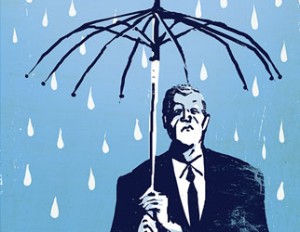Waiting on Greece
Investors must decide whether to stand pat or to place an advance bet as Europe attempts to solve its multiple and seemingly intractable problems.
Advertisement
Investors must decide whether to stand pat or to place an advance bet as Europe attempts to solve its multiple and seemingly intractable problems.
 By the end of the coming weekend, investors should have some inkling of how the next installment of the European soap opera will unfold. On Sunday, Greece will vote on leaving or retaining the Euro and the outcome should be clear by June 18.
Based on this column Wednesday by my former FP colleague Barry Critchley, Europe will eventually solve its multiple and seemingly intractable problems. As usual, investors must decide whether to stand pat and await the outcome, or to place an advance bet on whatever outcome they think most likely.
As Tony and Rob Boeckh write in the June 6 edition of The Boeckh Investment Letter, there’s the potential for a buying opportunity or a bust. The problem is that in the short term the fate of the Euro appears to be in the hands of a “traumatized, polarized and naive electorate, many of whom believe that Greece can end austerity and stay in the euro at the same time.”
By the end of the coming weekend, investors should have some inkling of how the next installment of the European soap opera will unfold. On Sunday, Greece will vote on leaving or retaining the Euro and the outcome should be clear by June 18.
Based on this column Wednesday by my former FP colleague Barry Critchley, Europe will eventually solve its multiple and seemingly intractable problems. As usual, investors must decide whether to stand pat and await the outcome, or to place an advance bet on whatever outcome they think most likely.
As Tony and Rob Boeckh write in the June 6 edition of The Boeckh Investment Letter, there’s the potential for a buying opportunity or a bust. The problem is that in the short term the fate of the Euro appears to be in the hands of a “traumatized, polarized and naive electorate, many of whom believe that Greece can end austerity and stay in the euro at the same time.”
 As the election approaches, there are early signs of panic—or perhaps we should say rising anxiety—with yields in perceived safe-haven fixed-income markets in Germany, the US, UK and Japan accelerating to what the Boeckhs term “ridiculous levels.”
If an equity sell-off resumes, there may be a great “buying opportunity for those who have remained underweight risk assets and have built up enough liquidity to feel comfortable taking advantage of the great value opportunities that will arise.” That translates into potential large rewards for those willing to risk it, the newsletter says.
As the election approaches, there are early signs of panic—or perhaps we should say rising anxiety—with yields in perceived safe-haven fixed-income markets in Germany, the US, UK and Japan accelerating to what the Boeckhs term “ridiculous levels.”
If an equity sell-off resumes, there may be a great “buying opportunity for those who have remained underweight risk assets and have built up enough liquidity to feel comfortable taking advantage of the great value opportunities that will arise.” That translates into potential large rewards for those willing to risk it, the newsletter says.
Share this article Share on Facebook Share on Twitter Share on Linkedin Share on Reddit Share on Email